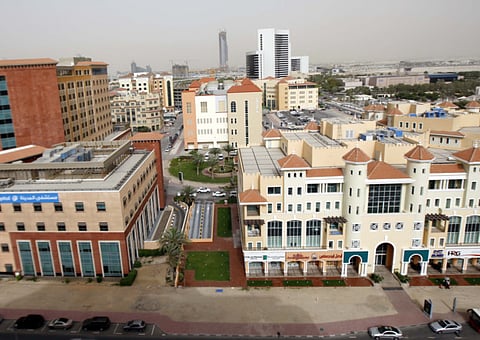Future looks bright for Dubai Healthcare City if Dubai wins Expo bid
Medical care, education, and research are three areas where growth is projected

Dubai: Imagine not having to travel overseas for an operation and doing it right at the comfort of your own city. Imagine having home-grown medical professionals caring for your specific needs. Imagine unlocking medical puzzles through evidenced-based research on diseases prevalent and particular to the country and the region.
These and more are Dubai Healthcare City’s (DHCC) projected targets over the next seven years here in the emirate. As Dubai gears up for the final weeks to the voting day on November 27 to determine the host city for the 2020 World Expo, various sectors in Dubai, including the healthcare sector, are leveraging on the new opportunities that can be created should the emirate win the bid.
Hopes are high everywhere in the city, especially in DHCC, the world’s first healthcare free zone launched in 2002. Marwan Abedin, CEO of DHCC, said the City is committed to generate fresh opportunities for partnerships and knowledge-transfer in the medical field for the next seven years.
“One of the things that we are striving to implement is His Highness’ vision to further enable Dubai Healthcare City to become the centre of excellence in providing medical care, medical education and medical research. These are our three cornerstones and areas that we will be focusing on and hopefully towards the end of this year, soon after the announcement of the 2020 Expo [winner],” Marwan Abedin, CEO of DHCC, told Gulf News.
Abedin said the Expo in Dubai will serve as an impetus for the City’s continued growth in the years to come. The City will not only cater to the growing medical needs of its local and expatriate population. It will also serve the growing number of medical tourists coming to the country which at present represent roughly 15 per cent of DHCC patients.
And with the UAE’s recent introduction of a new three-month medical tourist visa, which can be extended up to nine consecutive months, more foreign medical tourists are expected to descend on Dubai.
But the plan does not end there. Abedin said the City is bent on attracting international medical research firms to have their base at DHCC to facilitate knowledge-transfer and solidify the City’s drive to produce medical breakthroughs in the region. The Expo will provide the best platform for this, he said.
“We’re looking at how we can better accommodate research organisations, universities, hospitals and other clinics to come over here and set up at Healthcare City as a research base.”
Abedin said DHCC will facilitate and support research centres to perform world-class medical research tackling diseases prevalent in the region such as diabetes, a condition wherein blood sugar is higher than normal, and thalassaemia, a hereditary blood disorder that reduces the number of normal blood cells in the body.
“Every region has its own peculiarities, own diseases, own circumstances, weather and so forth. So this requires a lot more research customised to our region to really understand the reasons behind it. Only then can we actually look at coming up with some sort of cure,” Abedin said.
Existing facilities at the City such as its dedicated academic complex, the Mohammed Bin Rashid Academic Medical Centre, its Al Maktoum Medical Library, and one-of-a-kind Khalaf Ahmad Al Habtoor Medical Simulation Centre, will help realise this vision.
“We have the Medical Simulation Centre, which is second to none in the region and perhaps even wider as well. We have gained a lot of demand from the region in terms of collaborating with each other in that one facility,” Abedin said.
The simulation centre provides medical practitioners the chance to practise very complicated surgeries in a simulated environment days before the surgery in a group project style.
“Many times in medical care, whenever there are problems, usually it’s because communication breaks down. What we have noticed as one of the benefits of doing so is that communication is improved.”
And to further bolster plans of becoming the centre for excellence in medical education in the region, Abedin said the City will soon announce latest developments for the long-awaited University Hospital, a 400-bed capacity teaching hospital at the heart of the City. The facility is designed to educate and produce home-grown medical talents especially nurses.
Sign up for the Daily Briefing
Get the latest news and updates straight to your inbox



